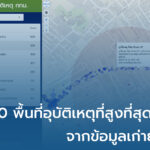| おい | - () (n) childish prank; mischief [EDICT]
- (甥) (n) (See 甥御,甥子) nephew; (P) [EDICT]
- (笈) (n) wooden box carried on one's back to store items for a pilgrimage [EDICT]
- (負) (n) wooden box carried on one's back to store items for a pilgrimage [EDICT]
- (老い) (n) old age; old person; the old; the aged; (P) [EDICT]
|
| セント | |
| 硬貨 | - (こうか) (n) (1) coin; (2) (See 軟貨) hard currency; (P) [EDICT]
|
| は | - (葉) ใบไม้ [LongdoJP]
- () (int) (1) (pol) yes; (2) OK (used to get attention prior to an utterance); okay; (3) giddy-up; giddap; (P) [EDICT]
- () (v5r,aux-v,suf) (hon) (ksb [EDICT]
- () (suf) (ksb [EDICT]
- (歯) (n) tooth; (P) [EDICT]
- (刃) (n) edge (of a knife or sword); (P) [EDICT]
- (派) (n,n-suf) clique; faction; school; (P) [EDICT]
- (破) (n) (See 序破急) (in gagaku or noh) middle section of a song [EDICT]
- (葉) (n) leaf; (P) [EDICT]
|
| ある | - (或) (adj-pn) (uk) a certain ...; some ...; (P) [EDICT]
- (或る) (adj-pn) (uk) a certain ...; some ...; (P) [EDICT]
- (在る) (v5r-i,vi) (1) (uk) (See 居る・いる・1) to be (usu. of inanimate objects); to exist; to live; (2) to have; (3) to be located; (4) to be equipped with; (5) to happen; to come about; (P) [EDICT]
|
| し | - (秭) (n) (obsc) 10**24; septillion (American); quadrillion (British) [EDICT]
- () (prt) only (used with a negative verb); nothing but; (P) [EDICT]
- () (prt) (1) (See からして・1,として・1,にして・1,為る・1) by (indicating means of action); as (a group, etc.); (2) (as 〜をして in modern Japanese) indicates patient of a causative expression; (3) (after the ren'youkei form of an adjective) acts as a connective; (4) (after an adverb or a particle) adds emphasis; (conj) (5) (See そして) and then [EDICT]
- () (n) intestine (yakitori) [EDICT]
- (仕) (n) official; civil service [EDICT]
- (使) (n) (1) messenger; (2) (abbr) (See 検非違使) police and judicial chief (Heian and Kamakura periods); (3) {Buddh} (See 煩悩・2) klesha (polluting thoughts such as greed, hatred and delusion, which result in suffering) [EDICT]
- (刺) (n) (See 名刺) calling card [EDICT]
- (司) (n) (arch) (See 律令制) office (government department beneath a bureau under the ritsuryo system) [EDICT]
- (史) (suf) history (e.g. of some country) [EDICT]
- (姉) (suf) (hon) honorific suffix used after the name of a woman of equal or higher status [EDICT]
- (子) (n) (1) child (esp. a boy); (2) (See 子爵) viscount; (3) (hon) master (founder of a school of thought, esp. Confucius); (4) (See 諸子百家) philosophy (branch of Chinese literature); non-Confucian Hundred Schools of Thought writings; (5) (arch) you (of one's equals); (n-suf) (6) -er (i.e. a man who spends all his time doing...) [EDICT]
- (市) (n,n-suf) city; (P) [EDICT]
- (師) (n) (1) teacher; master; one's mentor; (n,suf) (2) religious leader; (suf) (3) specialist; (n) (4) (arch) five-battalion brigade comprising 2500 men (Zhou-dynasty Chinese army) [EDICT]
- (枝) (ctr) counter for long, thin things (i.e. swords) [EDICT]
- (死) (n,n-suf) (1) death; decease; (2) (arch) (See 五刑) death penalty (by strangulation or decapitation); (P) [EDICT]
- (氏) (suf) (1) (hon) Mr; (n) (2) clan; (3) (hon) he; him; (ctr) (4) (hon) counter for people [EDICT]
- (糸) (n) (1) thread; (2) one ten-thousandth; 0.001 percent (one-ten-thousandth of a wari) [EDICT]
- (至) (pref) (See 自・2) to ... [EDICT]
- (視) (pref,suf) (See 疑問視,問題視) visual; vision [EDICT]
- (詞) (n) (1) words; writing; lyrics; (2) (See 填詞) ci (form of Chinese poetry); (3) (See 辞・3) independent word [EDICT]
- (詩) (n) poem; verse of poetry; (P) [EDICT]
- (誌) (n-suf,ctr) (abbr) (See 雑誌) magazine; (P) [EDICT]
- (其) (n) (1) (arch) that; (2) you; (3) oneself; themself [EDICT]
- (汝) (n) (1) (arch) that; (2) you; (3) oneself; themself [EDICT]
- (巵) (n) zhi (large bowl-shaped ancient Chinese cup with two handles) [EDICT]
- (卮) (n) zhi (large bowl-shaped ancient Chinese cup with two handles) [EDICT]
- (肆) (num) four (used in legal documents) [EDICT]
- (觜) (n) (See 二十八宿) Chinese "Turtle Beak" constellation (one of the 28 mansions) [EDICT]
|
| 俺 | - (おれ) สรรพนามใช้เรียกตัวเองของผู้ชาย ไม่สุภาพ [LongdoJP]
- (おれ(P);だいこう(乃公);ないこう(乃公)) (pn,adj-no) (male) I; me (rough or arrogant-sounding first-person pronoun, formerly also used by women); (P) [EDICT]
- (ǎn, ㄢˇ) I (northern dialects) [CE-DICT]
|
| が | - () (prt) (positive sentence end) I dare say; (negative sentence end) though, honestly [EDICT]
- () (suf,v5r) (1) to feel (on adj-stem to represent a third party's apparent emotion); (2) to behave as if one were [EDICT]
- () (n) scree [EDICT]
- () (adv-to) (1) (on-mim) thump; thud (dull sound representing something being hit); (2) severe; difficult; hard [EDICT]
- (我) (n) (1) {Buddh} obstinacy; (2) atman; the self; the ego [EDICT]
- (画) (n) picture; drawing; painting; sketch [EDICT]
- (蛾) (n) moth [EDICT]
- (賀) (n) (See 賀の祝) congratulation [EDICT]
- (雅) (n,adj-na) (1) (ant [EDICT]
|
| 最初 | - (さいしょ) (adj-no,n-adv,n-t) beginning; outset; first; onset; (P) [EDICT]
- (zuì chū, ㄗㄨㄟˋ ㄔㄨ) first; primary; initial [CE-DICT]
|
| に | - (二) สอง [LongdoJP]
- () (prt) indicates location of action (formal literary form of "de"); at; in; (P) [EDICT]
- () (prt) (See に,は) for (in regard to); in order to [EDICT]
- () (exp) also; too; not ... either; as well; even [EDICT]
- () (exp) (1) (also にゃあ) (See ねば) if not ... (negative conditional); (2) (See には) for (in regard to); in order to [EDICT]
- (荷) (n) (1) load; baggage; cargo; freight; goods; (2) burden; responsibility; (P) [EDICT]
- (似) (suf) takes after (his mother) [EDICT]
- (丹) (n) red earth (i.e. containing cinnabar or minium); vermilion; (P) [EDICT]
- (土) (n) (arch) soil (esp. reddish soil) [EDICT]
- (尼) (n,n-suf) (abbr) (See 比丘尼) bhikkhuni (fully ordained Buddhist nun) [EDICT]
- (弐) (num) two (used in legal documents) [EDICT]
|
| 来る | - (きたる) (v5r,vi) (1) to come; to arrive; to be due to; (adj-pn) (2) (ant [EDICT]
- (くる) (vk,vi,aux-v) (1) to come (spatially or temporally); to approach; to arrive; (2) (See 行って来る) to come back; to do ... and come back; (3) to come to be; to become; to get; to grow; to continue; (vk,vi) (4) to come from; to be caused by; to derive from; (5) (See と来たら) to come to (i.e. "when it comes to spinach ..."); (P) [EDICT]
|
| た | - () (aux-adj) (1) (after the -masu stem of a verb) want to ... do something; would like to ...; (prt) (2) (kyu [EDICT]
- () (exp) (abbr of ...ていたの) (See 乃・の・5,わ) (usu. sentence end) indicates emotion, admiration, emphasis, etc. [EDICT]
- () (aux-v) (after a noun, usu. as 〜たる者, etc.) (See たり,たるや) (those) who are; (that) which is; often used in relation to qualifications and requirements for a position; in the capacity of [EDICT]
- () (suf) (m-sl) (fam) (fem) (See ちゃん) (cute) suffix for familiar person [EDICT]
- (他) (n-adv,n,adj-no) other (esp. people and abstract matters); (P) [EDICT]
- (多) (n,pref) multi-; (P) [EDICT]
- (田) (n) rice field; (P) [EDICT]
|
| ん | - () (prt) that being the case; because of ...; the reason is ....; given that...; (P) [EDICT]
- () (exp) the expectation is that ...; the reason is that ...; the fact is that ...; it is that ...; (P) [EDICT]
|
| だ | - () (prt) (1) (as …たり…たり, after the ren'youkei forms of multiple verbs) -ing and -ing (e.g. "coming and going"); (2) (used adverbially) doing such things as...; (3) (as …たり…たり at sentence-end, after the ren'youkei forms of a repeated verb) expresses a command; (aux-v) (4) (たり only) (arch) (from とあり) (See たる) (after a noun) to be; (5) (たり only) (arch) (from 〜てあり, after the ren'youkei form of a verb) indicates completion or continuation of an action; (P) [EDICT]
- () (prt) (1) (fam) marks wh-question (what, where, who); (2) (chn) strengthens one's judgment or conclusion; (P) [EDICT]
- () (exp) if it's the case; (P) [EDICT]
- () (prt) even [EDICT]
- () (suf,prt) and; or; and the like; and so forth; and what not; (P) [EDICT]
- () (exp) (1) (See でしょう) seems; I think; I guess; I wonder; I hope; (2) don't you agree?; I thought you'd say that!; (P) [EDICT]
- () (n) (col) (abbr) (See 友達) friend [EDICT]
- () (n) undercut (of a machined edge) [EDICT]
- (駄) (pref) (1) (See 駄文・1) poor; low-grade; trivial; insignificant; worthless; (n-suf,ctr) (2) (See 一駄) load; pack; horse load; (n) (3) packhorse [EDICT]
- (兌) (n) dui (one of the trigrams of the I Ching [EDICT]
|
| ぜ | - () (prt) (male) (sentence end) adds force; indicates command; (P) [EDICT]
- () (prt) (arch) (at sentence-end) indicates mild emphasis [EDICT]
- (是) (n) righteousness; justice; right [EDICT]
|







